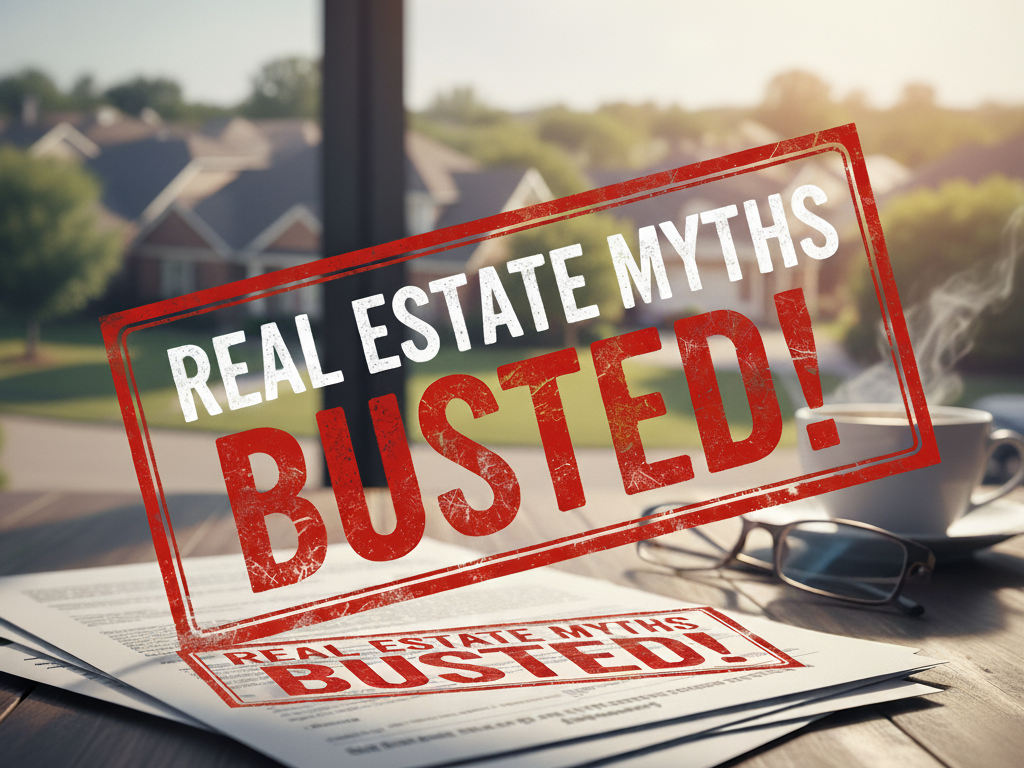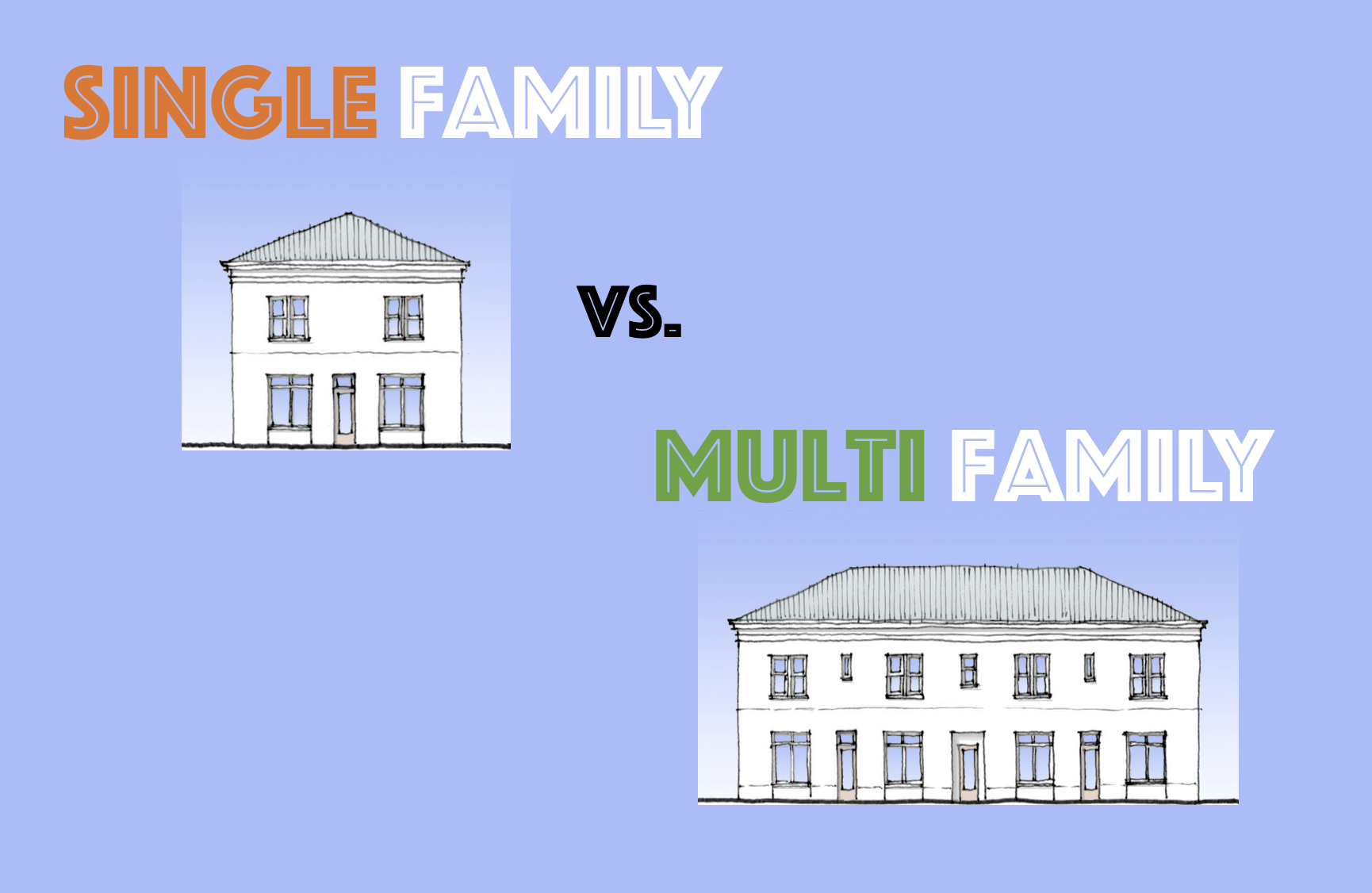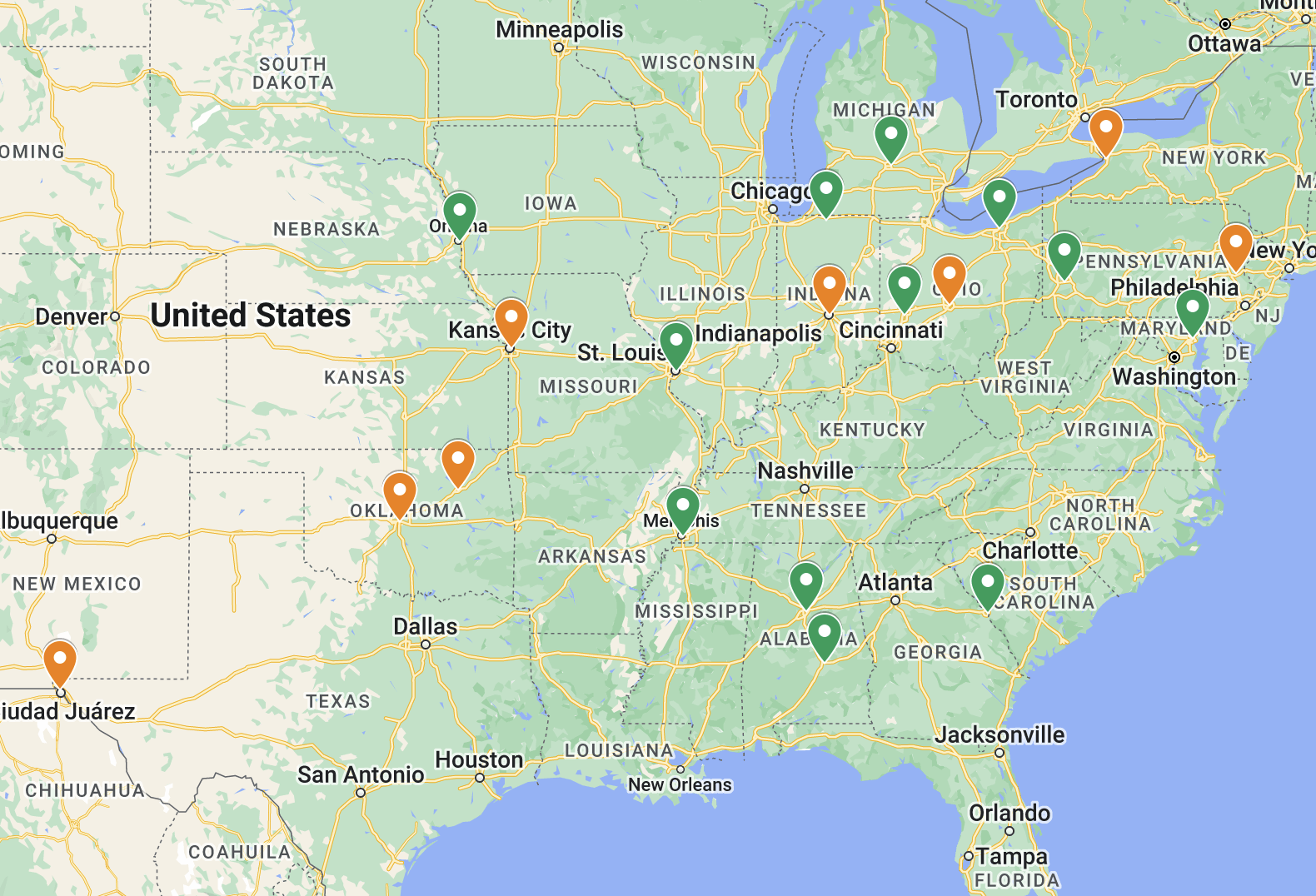Rental Property Coaching Case Study: Daniel Buys 6 Birmingham Rental Properties in 6 Months
I first met Daniel in February 2022 when he scheduled a free initial consultation. He was in his early thirties, and had a solid job in software sales. He had invested with a group of friends into a few multi-family properties in Phoenix, but he was disappointed with the cash returns, and with his inability to access his invested capital. He and his buddies had significantly improved the properties, and their value had correspondingly increased, but he was looking to build cash flow to offset his W2 income and eventually have the option to leave his job — and the Phoenix properties were not getting him any closer to that goal.
So he was ready to take matters into his own hands and buy some properties on his own. He had already done some initial research, and was interested in cash flow markets like Memphis, Birmingham, an Dayton. He later chose Birmingham, and within six months of signing on to work with me, Daniel had purchased six rental properties! (And he was looking to continue scaling — in fact, at the time of writing, he’s now in contract on his 10th property.)
But at this point I’ll turn it over to Daniel, and let him tell the story in his own words. What follows is a transcript of an interview I conducted with him in fall 2022, lightly edited for clarity.
Daniel’s Rental Property Coaching Journey
Eric: Daniel, thanks for doing this, and welcome. To start off, tell me a little about yourself and why you wanted to get into rental properties.
Daniel: Sounds good, Eric. I am 33 years old. My wife and I live in San Diego, California, where I've been for the last eight years. I actually grew up in California and haven't really ever left. I was interested in real estate investing because for a long time, I've been interested in financial independence, and in the FIRE movement. I had been reading about that for a long time and what had motivated my interest in those things was really financial freedom, which to me meant the flexibility to do more of the things that I wanted to do with my time, to decide not to work eventually, or to do the types of work that I wanted to – and for my wife to be able to do the same. So for a long time, I had been interested in just stock market investing, basic index funds, based on the consensus of the majority of the FIRE community. But I also got interested in real estate investing and taking a little bit more active approach to investing in hopes of better returns and actual cash flow, rather than just more passive returns in the stock market.
Eric: Gotcha, okay. And is early retirement the main goal, or one among several goals? How do you think about that?
Daniel: I think about this way: I would love to have the option to retire early. I don't know that necessarily my wife and I will stop working. But I think we’d like to quit the 9-to-5 grind early if we can. I'd like to have the freedom and the flexibility to do the type of work that I want to. So yeah, maybe that does all fall under the category of early retirement, but I think there will always be some type of work that I do, but I'd like to have the option to choose what it is, even if it's not earning as much as my current career does.
Eric: Yeah, that makes a lot of sense. So you were interested in rental properties as a style of investing to give yourself those options. Why did you ultimately decide to hire someone to help you with that?
Daniel: Yeah, well, I had actually been involved in real estate investing for a while before I decided to hire a coach or reach out to you, Eric. I started real estate investing about seven years ago with a group of friends of mine. We all worked in software sales together. I've worked at a couple of jobs and had some similar goals when it came to financial freedom and investing. And we had all read the Robert Kawasaki book at the time, Rich Dad, Poor Dad. Together we bought several multifamily rental properties in Phoenix. We had no real process or experience or financial projections besides some basic back-of-the-napkin math at the time. We just happened to get totally lucky that the Phoenix market was a fairly strong market with a lot of growth. So those properties for the most part did well.
There were a few mistakes that we made early on, so eventually I decided that I wanted to take a more analytical approach to real estate investing, take a more structured approach. And whereas our properties in Phoenix had been appreciating well, they weren't generating much cash flow. So I found that we had all this equity tied up in these properties in Phoenix that I wasn't able to tap into. I wanted to build consistent cash flow that would allow me the freedom and the flexibility to ditch the 9-to-5 if I wanted to, or travel with my wife if I wanted to. So those two things — a more structured approach and generating cash flow rather than just appreciation — were what led me to find a coach and brought me to you, Eric.
The First Rental Property
Eric: So tell me the story of your first property — including the details about that property, how you found it, your reactions to it at the time, how you felt about it, whether it met your expectations, and so on.
Daniel: I think that at the time, having had a little bit of experience in real estate investing, I knew that I didn't want perfect to be the enemy of good in my search. I didn't have expectations of some perfect, pristine, polished rental property that would be the absolute epitome of the right rental property.
So my focus was more on executing with your help to find a property and get the experience under my belt and keep moving, make progress, right? We had started working together in early March of 2022, I think. Soon after we had finished the market selection and the basics of the how to evaluate properties, I'd been running the numbers and making some offers. That first property that we ended up closing on was a three-bedroom two-bathroom house in the Birmingham market. It was actually in better condition than I expected, had been recently remodeled, was well within the budget I was expecting and met our goals for rent and cash on cash returns. And the inspection didn't turn up a whole lot of major issues. So that one, I would say really actually exceeded my expectations and I was eager to get that one done and move on to the next one for sure.
Eric: What was the price you paid for that house?
Daniel: $120,000.
Eric: And was it occupied or vacant at the time?
Daniel: It was vacant.
Eric: Okay, and so how did the process work to place a tenant after you closed?
Daniel: The property manager that we worked with, which you had referred me to, did an outstanding job. They did an initial inspection during the closing process so that I could anticipate what the cost to get the property rent-ready would be. After we closed on the property, they immediately had the contractor lined up to do the relatively minor work necessary to get the property rent-ready, fix some minor issues with a loose toilet or a door handle that needs to be replaced, those sorts of things.
Once that work was done, they began marketing the property for rent, and we began getting interest from renters in the property. I think this property took a little less than two months to get rented. I believe we did drop the price of the rent one time to get a little bit more interest because we had early interest but not as many applicants for the property as we wanted. I’ll also say that the tenant screening that the property manager does is so important to ensure that we get a great tenant that's going to pay consistently. And that was also part of the reason I think this took a while is that we wanted to get a good tenant in.
Eric: Yeah, for sure. Tenant screening is one of the big things that the PM is always going to do better than you. And it makes a huge difference in the long run. So in this case it took you a little while, a little under two months, to get it rented, but you've got a tenant in there now.
Let’s talk about the numbers. You obviously put together a financial pro forma for this property before you closed. After your rent-ready rehab and the rent that you ultimately got for the tenant, did it come in where you had modeled it or above or below?
Daniel: It came in close to where I had modeled it. I'd say the only aspect that I was off in my projections was in being slightly too optimistic about the rent – in the first year. Now, I expect with the market conditions that fairly significant rental increases are likely each year. But in the first year, I think that's the only place that we were off a little bit.
Eric: If the tenant moved in in the spring (of 2022), then yeah, on their renewal, probably there will be an increase to try to get back to market rent. Rents went up a lot in those intervening months, even though things are stabilizing now. Year one returns are always a starting point and over the life of the property, the rate of return improves, because all your costs go up, except mortgage, which stays the same. And of course your rents go up, so that works out to your advantage in the long run.
Daniel: Yeah, I definitely agree. Coming into a new market in Birmingham, I would say it built up my patience muscle. I really think about real estate investing as a long-term investment, one where I know the most significant returns are going to happen later down the road. Of course, I'm always going to shoot for significant returns out of the gate if I can. But if that doesn't happen, I'm not discouraged because these are long-term investments. These are mainly properties that I wanna hold for potentially the rest of my life.
Eric: Yeah, I love that. And I tell people no matter what the conditions are now, or what missteps you may have, or what misfortunes may come your way right out of the gates, if you hold the property for 20 or more years, it's pretty hard to mess up — because there's a lot of things really working in your favor in the long run. So I love that long-term perspective that you’ve developed.
Scaling the Rental Property Portfolio
Eric: After that first house, you went on to buy some additional properties. Any other lessons learned in the course of acquiring those properties, or anything else that surprised you?
Daniel: Yeah, something I really learned from you was that there are often at least some seller concessions that can and will be made during the negotiation process. Getting your help to evaluate the inspection reports that we received was super valuable — we were able to create a case to request some seller credits or seller concessions and those ultimately brought down the acquisition price of the property. That has been really helpful to me and I now factor that in when I think about buying these properties. Being able to use that seller credit towards the down payment or towards the closing cost is my preferred route — I almost always do that first because that brings down your initial investment amount rather than just the mortgage.
I’ve also gotten better at estimating rent. I've noticed with some help from my property manager that there a fair amount of rental listings on the market that may not have realistic asking prices. Some of these listings have been sitting on the market for months because they’re priced too high. So now I try to make sure I look at that, how long the listing has been on on Zillow, before I take into consideration that rental amount in my calculation.
The other important thing I’ve learned is anticipating rent-ready costs. Even the properties that look really nice and have been recently renovated are probably going to have at least some minor costs to get them rent-ready. And and so now I try to make sure I'm planning for that.
Eric: Got it. At this point, what does your portfolio look like? How many properties do you have, and how are things going? Specifically, I think a lot of people will be curious what rate of cash return you're modeling across the portfolio at this point.
Daniel: Yeah, so I have six single family homes, all in the Birmingham market. I purchased all of them at price points between about $90,000 to $150,000. And they're all generally in the same areas, I would say C+/B- properties. I think it's a little bit early for me to tell exactly how the cash flow figures are going to come out, because we've just recently finished some of the rent-ready work and gotten some of these rented out. Right now, five of the six are rented, and the sixth just got listed last week. But generally speaking so far, they seem to be lining up very close to our projections. So I'm super happy with them. I'm very optimistic about how they're going to work out.
I just had a couple like major life events — I got married, and started a new job. So I was temporarily preoccupied with other things, but now am planning to continue the search and buy some more properties.
Eric: That’s great — and congrats on the wedding and the new job!
When we think about cash flow, there’s the model and then there’s what actually happens. You’re in the early days with these properties, but let’s zero in on your projections. When you bought these, of course, mortgage rates were a little lower than they are now, which we can chat about in a minute – but I think we were looking at cash on cash returns generally north of 8% on your homes, right?
Daniel: Yeah, for pretty much every single one we were close to 10% in the models. There were a few that given the areas that they were in, I was comfortable with a little bit lower projection at 7% or 8%.
Pursuing “Low Variance” Rental Properties
Eric: Okay. With higher mortgage rates today, expected returns have been pinched a little bit, so those are very healthy numbers. Let’s shift gears and talk about mindset: have there been any setbacks, any points of emotional distress for you through this process?
Daniel: (Laughs) Yeah. There were a couple and I've come to expect that in real estate investing. There are gonna be some surprises! And also, there are gonna be some situations where you walk away from a property, from an investment, and have already spent some money on it. Maybe you've already paid for the inspection, or maybe you even already paid the earnest money and need to walk away from that as well.
The one that stands out to me was a property early on that I was interested in buying and the numbers looked great. It was a four-bedroom, two bath in the Center Point area in Birmingham. But the inspection just turned up an enormous amount of problems, in particular with the plumbing system, which can always be a major cost to replace.
This was one where I was still eager to invest because it was an early property we were considering in Birmingham and I wanted to build a portfolio quickly. But you gave me a lot of constructive feedback about the amount of work that it might take, other unexpected surprises with a property that's already showing these signs of wear and disrepair, and the considerations that I should make if I wanted to move forward with a property in this state. So eventually I decided to walk away from it. And I'm very glad that I did. I think, especially early on in investing in a new market, I really wanted to avoid these massive projects that had the potential for lots of surprises.
With the other six that I did close, really there have been no major surprises. Some minor projects and repairs that needed to happen, a little bit of rent ready work that needed to happen, but that's it. They've all otherwise been smooth.
Eric: Yeah, that's great — so far, so good. But as I’m sure I’ve said to you before, there will be moments somewhere in the future where you deal with major maintenance issues that are a surprise or CapEx replacements that you weren't planning on or tenant non-payment issues, etc. All of that will 100% be in your future, but I think it's very smart that you attempted to chart a path of low variance at the beginning, so that things are a little bit more predictable. That way you get some experience that'll help insulate you in the future when things go sideways at some point, as they inevitably will.
Daniel: You're totally right. And this is part of why I wanted to find a coach, and to work with you. I had a couple of experiences in the past in real estate investing where I bought properties that ended up being a total disaster. One was our second property that we bought in Phoenix, which had 14 units. We had been totally duped by the seller who had coerced us into using an inspector that was sketchy. And because we didn't know who to work with in the area, we ended up buying a bad property that had constant problems.
We had to sell it two years later. And fortunately the following property, we did a better job on, but I wanted to avoid that type of situation. And I had the same thing happen in Atlanta when some friends and I tried to invest in that market because we didn't know the market well, and we didn't know the people to work with. We didn't anticipate certain things that were unique to the Atlanta market like their high tax rate and high insurance rates. We actually ended up walking away from a deal that cost each of us $15,000 in earnest money. So that hurt! I didn't want to make that mistake again. And that was a big motivator for finding a coach for sure.
The Rental Property Coaching Process
Eric: Talk a bit more about how you leveraged me as a coach throughout the process, and made best use of me as a resource.
Daniel: Yeah, well, I asked you everything. Anything that came across my mind, I sent your way and you were great about being responsive and really thorough in how you responded. I think some of the things that were most useful early on was in helping me analyze different markets and ensure that the market I chose was aligned with my goals — that was a helpful exercise for me, and I’m very happy where I ended up.
After that, I leveraged you with running the numbers and making sure that the numbers I was calculating were correct, and I wasn't being overly optimistic or too conservative, and that I wasn't missing anything on the rental listings. You were great about being so thorough in reviewing the listings that I was considering and often finding things that I might not have been thinking about. So I'd say early on, those were really important to me.
You also helped me quickly build a network in the market that I could trust and rely on. I've ended up using the lender you recommended for five of the six properties. I've used the property manager you recommended for every single one. I've used the agent organization that you recommended for every single one. I feel confident in all of those relationships. So that's been really helpful as well.
Eric: Great, very happy to hear that. So looking back on your experience so far, what do you think you've done that's allowed you to be successful? What specific actions did you take that you would recommend to others?
Daniel: I didn't sit on the sidelines. This was the most important thing for me. It's also something that I learned in my previous real estate investing experience — no property really ever looks perfect. And if it does, it's probably crazy competitive to get anyways. So I early on decided that I was going to to find that first property, get the deal done, learn from it and move on to the next. And that's helped me continue to improve my process, hone in on the areas and the types of properties that work best for me, and ultimately build the portfolio rather than sit on the sidelines and analyze hundreds of properties without taking action. So I think that's been most important.
The Time Commitment of Rental Properties
Eric: Describe your process and daily activities when you were in full acquisition mode. What did that look like and how much time did it take, do you think?
Daniel: Yeah, at least once a day I was reviewing all of the newly listed properties for sale in my market. At this point, I’ve honed in on more specific neighborhoods, but at the time I was looking at all of them because I just wanted to get a sense of each neighborhood and which might suit me best. The listings that did seem like they should at least be considered more closely, I would use the RIA Property Analyzer to run the numbers, and if they looked good, I would send it your way for review if it was one that I was interested in placing an offer.
Eric: I like that idea of casting a wide net first and then narrowing it as you get some experience. So I'm assuming you saw your process got faster over time, and that as you continue to scale your portfolio in the future that you'll be able to be more efficient than you were in your initial searches?
Daniel: Absolutely. Now my searches are more narrowly focused into the neighborhoods that I know work best for me. And early on where I was sending lots of offers and only getting a few accepted now I have a better sense of for what it takes to get an offer accepted on a certain type of property in a certain neighborhood.
Eric: That’s really interesting. You know, a lot of folks ask, how much work is this, how passive is this process? And, you know, my general answer is that the acquisition takes work, particularly at the beginning when you're learning. But once the property gets turned over to your PM that it's almost completely passive. Has that basically been your experience as well?
Daniel: Yeah, absolutely. And even in the acquisition phase early on, I wasn't spending much more than an hour, maybe two if I was feeling ambitious each day reviewing the new properties that had been listed. Once you get into a rhythm, there aren't necessarily that many that are added each day that you need to review, at least not in my market. So it was something that I could easily do on top of my day job and regular responsibilities I had.
And since then, to the second part of your question — since the properties have been acquired, there's very little input that's needed from me. Maybe once or twice a week, I'll get an email from the property manager with a question or something that they'd like me to look at.
Plans for the Future
Eric: Okay, great. And so, you've got six properties now. So what are your plans for the future for your portfolio, and more generally?
Daniel: The goal is $100,000 in annual income from the rental properties. So I have some work to do and I'm gonna keep buying properties. My goal for the rest of the year is to buy at least one more in 2022 but potentially additional properties if it makes sense.
Eric: Got it. And how are you thinking about your new acquisitions in light of interest rates that are climbing?
Daniel: You know, as long as the numbers work out and meet my expectations of what I need to see in a rental property, then I'm not concerned about the interest rates. Interest rates are still historically low, so it really hasn't deterred me. I recently spoke to my agent about the market conditions, and they mentioned to me that now things are becoming less competitive, and there are potentially less buyers in their market. So that seems likely to me to balance out the changes in interest rates anyways. But I really don't spend too much time thinking about the interest rates. I just focus on what the numbers and the analysis tell me. And if those look good, I'm gonna move forward.
Eric: This is a topic that has come up a lot recently, as far as recalibrating expectations of cash on cash returns due to higher interest rates. Investors have to decide, do I accept that lower cash on cash return? Is it still worthwhile to get a mortgage? I think yes, very clearly it is worth getting a mortgage based on those long-term benefits of leverage that are really powerful. And if we continue to be in an inflationary environment, then year two and three starts to look really much better as far as cash on cash returns. On the other hand, if inflation drops and mortgage rates drop in kind, then you can refinance into a better rate that's going to improve the cash flow. So that's kind of my spiel as far as mortgage rates recently.
Daniel: Exactly, Eric. And I feel the same way about it. With real estate, what's always attracted me is that there are so many ways to win with a property investment, right? You can win from the rental income, the cash flow. You can win from the appreciation of the property. You can win from the tax advantages of owning the property as well. So even if that cashflow gets hit a little bit in the short term, I'm still confident in the other aspects of the real estate investment and I'm not dissuaded.
Eric: Yeah, I love that. Okay, last question for you, Daniel. Looking back, do you feel like you made the right decision in hiring somebody as a coach? Was it a good deal for you, and how do you think it turned out?
Daniel: I don't feel like I made the right decision in just picking somebody for a coach. I feel like I made the right decision in picking you for a coach specifically. I mean, I've been so impressed by the quality of work and the care and attention that you give to me as a client, as a student. And I got so much value from the program. I mean, it was in retrospect, a total no-brainer. I think that says a lot particularly in the real estate space, because there are so many gurus and scammy workshops out there. That’s why I was initially really apprehensive when I was looking around for help, trying to determine what was real and what was total bullshit in the real estate mentorship space. But your coaching has been absolutely outstanding. I'm so happy with the program and with the relationship that we have.
Eric: Thanks, Daniel, very much appreciate you saying all that. From my perspective, that’s what makes coaching gratifying, is to see the success of people you’ve coached. Thanks again for taking the time to have the conversation, and continued success with your investing.
Daniel: Thanks, Eric.
About the Author
Hi, I’m Eric! I used cash-flowing rental properties to leave my corporate career at age 39. I started Rental Income Advisors in 2020 to help other people achieve their own goals through real estate investing.
My blog focuses on learning & education for new investors, and I make numerous tools & resources available for free, including my industry-leading Rental Property Analyzer.
I also now serve as a coach to dozens of private clients starting their own journeys investing in rental properties, and have helped my clients buy millions of dollars (and counting) in real estate. To chat with me about coaching, schedule a free initial consultation.































